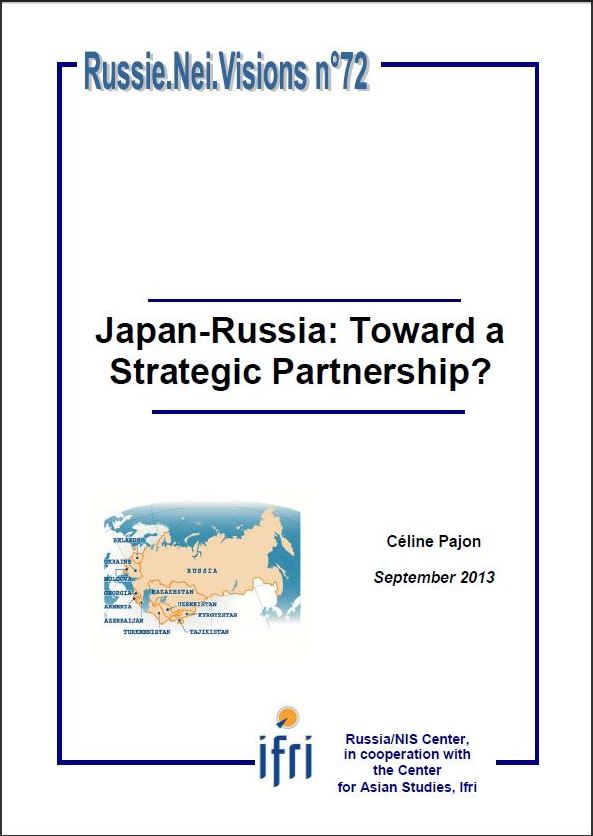Japan-Russia: Toward a Strategic Partnership?

Do the peace talks between Japan and Russia, reopened in March 2013 by Shinzo Abe and Vladimir Putin, have any chance of success? A window of opportunity has indeed opened for an historic rapprochement between Russia and Japan.
The two countries have converging strategies and interests with regard to the key issues surrounding energy cooperation and the balance of power in Asia. Tokyo sees Moscow as a key player in its post-Fukushima energy policy, while Japan is an essential partner for the development and integration of Russia's Far East. In addition, the two countries share concerns over the increasing power of China, which could threaten the multipolarity of the region. By forging closer ties, Moscow and Tokyo can diversify their diplomatic relations and provide a counterweight to Beijing. In this new geopolitical climate, strengthening of shared strategic interests should enable the territorial issue to be relegated to a position of secondary importance.
This paper is the product of cooperation between the Russia/NIS Center and the Center for Asian Studies, Ifri.
This paper is published in French only – Japon-Russie : Vers un rapprochement stratégique ?
Related centers and programs
Discover our other research centers and programsFind out more
Discover all our analysesThe Caspian Sea as an Emerging Energy Hub : Potentials and Limitations
This report analyzes the prospects of the Caspian Sea region — and its key actors except for Russia and Iran — becoming an important energy hub serving the needs of the European Union (EU).
The European Union's Strategic Test in Georgia
The political crisis brewing in Georgia is of an existential nature for the country. What is at stake is Georgia's future as a democratic and sovereign European nation (EU).
Commanders of Putin's Long War: Purged, Reshuffled and Disgruntled
The trend of reshuffling the Russian top military command in the course of a fast-evolving and far from successful war has progressed unevenly both across the Armed Forces’ structures and in time. The rationale for and timing of the abrupt cadre decisions made by Commander-in-Chief Putin often defy logical explanation, and the rare official clarifications are no more informative than the usual information blackout.
Russian Military Manpower After Two and a Half Years of War in Ukraine
In addition to a military victory in Ukraine, the Russian leadership is planning to build up sizable troop formations for a possible conflict with NATO in the Baltic region and the Kola Peninsula. In particular, current plans aim for the military manpower to grow by about 350,000, reaching a total of 1.5 million soldiers and commanders. In the context of the current conflict in Ukraine, this cannot be accomplished without a new wave of mass mobilization.











